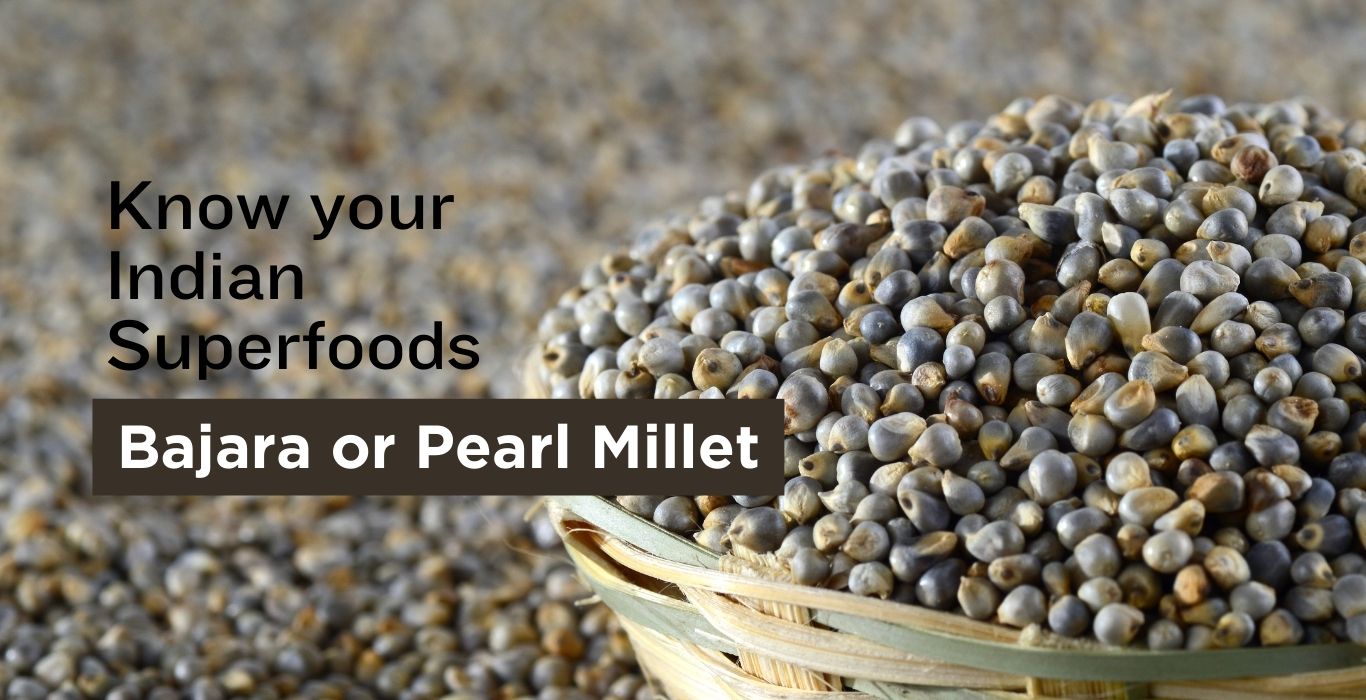Winter is the time for comfort, for good food and warmth, for the touch of a friendly hand and for a talk beside the fire: it is the time for home.” — Edith Sitwel
Winter is a season of chilly mornings, foggy landscapes and the warmth of cozy blankets. Festivities and holiday cheers are other attractions that make winter a season of joy and celebration.
Apart from these cozy vibes, winter is also a time to nourish your body with warm foods. These foods not only provide warmth and nourishment to your body but they work great in protecting you against seasonal illnesses as well.
In India, warm food is not limited to hot food, but certain food items are considered to generate heat in the body and are staples during winter.
- Dry fruits
- Jaggery,
- Gond,
- Ghee
- Bajara
- Root vegetables are some of the popular winter foods in India.
Among grains, bajara or Pearl millets top the charts. Bajara possesses many great qualities that make it a staple food in India during winter.
To know more about Bajara read our blog here
7 Reasons why Bajara is best winter staple in India?
Body Warming Properties
Bajara possesses excellent body-warming properties. Research shows Bajara is a sustainable source of starch. The starch converts into energy and improves blood circulation. Thus, it aids in maintaining internal body temperature and ensures a cozy and comfortable feeling during the colder months.
Act as a steady source of energy and manage blood sugar effectively
Bajara is a great source of complex carbohydrates. Thus, it absorbs slowly and prevents sugar spikes. As per research, bajara contains phenolic compounds that show anti-diabetic activity and work great in managing blood sugar levels. Moreover, this steady energy release helps in maintaining optimal energy levels throughout the winter day and prevents fatigue, too.
High Nutrient Content
Bajara is a powerhouse of nutrition. As per the nutritional profile, 100 gm of Bajara contains 9-21% of protein, 5-7% gms of fat and provides 360 calories. Moreover, bajara is a rich source of various essential nutrients, such as Iron, Zinc, magnesium, phosphorus, and potassium. These nutrients play a vital role in improving your overall health and wellness during the winter season.
Good for weight management during winter
Bajara is a great source of dietary fiber. It contains 5g /100gm insoluble fiber and 3g/100gm soluble fibers. This high fiber content aids in healthy digestion and promotes a feeling of fullness after eating. Thus, they can play a vital role in managing your weight during winter, when your physical activity level gets reduced.
Improve hair, nail and skin health
Hair, nail and skin problems are common during winter. It is believed that Bajara or pearl millets contain various essential nutrients (such as 2.8mg niacin and 0.38mg thiamin) which help in dealing with skin, hair and nail problems and improve your hair and skin texture too. However, more research is needed to confirm this fact.
Heart-Health Benefits
Research indicates that the consumption of bajara is associated with cardiovascular benefits. It contains a good amount of potassium and also plays a vital role in cholesterol management. Thus, it can potentially reduce the risk of developing cardiovascular diseases.
Versatile Grain and suitable for making a variety of dishes
Bajara is a versatile grain and you can make various amazing sweet and savory winter recipes with it. Bajara Raab, Bajara roti, Bajara soup, bajara kheer and Bajara methi thepla are some of the tasty and healthy recipes that you can make with Bajara during winter.
Conclusion
In conclusion, Bajara or pearl millet is one of the best millet varieties to include in your winter diet. If you are looking to buy high-quality pearl millet products such as Bajara flakes, then, visit our website Skyroot.in. we offer the best quality millet-based products at an affordable rate.
FAQ for consumption of bajara during winter
Q1: How frequently should I include Bajara in my winter diet?
A1: Bajara can be consumed regularly as part of a balanced diet. However, moderation is key to ensuring a diverse nutritional intake.
Q2: Are there any side effects of consuming bajara during winter?
A:2 Bajara is generally well-tolerated. However, individuals with specific health conditions (especially digestive disorders) should consult a healthcare professional before making significant dietary changes.







